 The Exposing 40 project is a body positive photography adventure for friends of all shapes and sizes, male or female. Exposing 40 wants to us to celebrate ourselves and confront our insecurities through beautiful, though-provoking and occasionally silly photos. Although this blog is led by one 40-something woman from South London who also tweets at @exposing40, so far around 20 other beautiful people have participated either as photographer, subject or guest blogger. Guest photographers, subjects and writers are always welcome so if you’d like to get involved just get in touch either by tweeting, or emailing at Exposing40@gmail.com.
0 Comments
 Stephen is completing his PhD at Leeds Trinity University in West Yorkshire, UK. Stephen is interested in all aspects of 18th- and 19th-century social and cultural history, although his research has led him into a few areas of focus, in particular the history of crime, criminal biography. His PhD thesis, however, examines 18th- and 19th-century literary representations of Robin Hood. Last year, Stephen “discovered” a forgotten 18th-century Robin Hood text. This “discovery” has been featured in several newspapers worldwide. His book on Wat Tyler is forthcoming with Pen and Sword publishing. You can follow him at @sbasdeo1 Introduction
George William MacArthur Reynolds’ masterpiece crime novel, The Mysteries of London, serialised between 1844 and 1848, was the biggest-selling of the Victorian era. He was a prolific novelist, and throughout his long career authored over thirty novels, as well as serving as the editor of Reynolds’ Newspaper and Reynolds’ Miscellany. All of the novels and magazines that he authored were sold for a penny, and were easily within the reach of the literate middle classes, as well as some of the more affluent members of the working classes. His stories struck a chord with readers because they were politically radical. They were also sensational, with all of the master villains in each tale usually being high born, and showed the aristocracy in a scandal-ridden light. Along with this, there were healthy doses of violence. 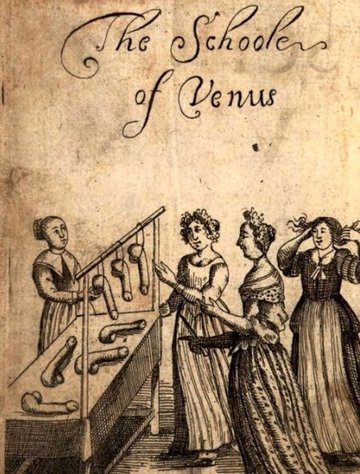
"To Madam S――― W――― None Madam can be a candidate with you for this dedication, ’tis your Lordship alone has passed all the forms, and classes in this School, what delights you give, and with what eagerness you perform your Fucking exercises is sufficiently known to the many have enjoyed you, for you Madam like the Supreame Powers have such a communicative goodness, as you scorn monopolizing your Cunt to a single keeper, but have generously refused no Man a kindness who desired it, having often been heard to say ’twas not in your nature to deny satisfaction to a standing Prick, and that ’twas not barely thrusting a Prick into a Cunt, but the well managing of a Fuck makes the Summum Bonum. Tell not me therefore of Messalina, what though she was enjoyed by Fourty or Fifty Men in a day, if your Ladyship could command as many bodies as you have had Pintles between your legs, you might lead as great an Army as Xerxes did into Greece, or if a Pyramide of those standing Tarses [cocks] your Cunt hath subdued were to be erected, I am confident it would exceed that Monument of Sculls erected, by the Persian Sophy in Spahaune, under your patronage therefore this Book comes abroad, and if it have your approbation I care not if other Ladies dislike it, Favourably therefore receive this Dedication from Madam Your Most Humble Servant."
The dedication in The School of Venus, or the ladies delight: Reduced into Rules of Practice (1680) 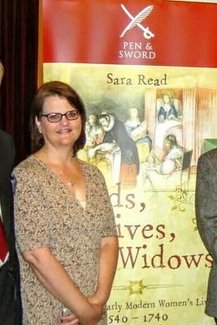 Sara Read is a lecturer in English at Loughborough University and has published widely on the topic of reproduction and seventeenth century literature. In 2015 she brought out a book Maids, Wives, Widows: Exploring Early Modern Women’s Lives with Pen and Sword. Details available http://www.pen-and-sword.co.uk/Maids-Wives-Widows-Hardback/p/10534 For more fascinating posts like this one, pop over to the blog she co-edits, earlymodernmedicine.com You can follow her at @saralread  Rebecca Rideal is a writer, historian and former specialist factual TV producer, whose TV credits include Adventurers’ Guide to Britain, Bloody Tales of the Tower, and the triple Emmy award winning series David Attenborough’s First Life. She runs the online history magazine, The History Vault, and is currently studying for her PhD on Restoration London at UCL. Her first book 1666: Plague, War and Hellfire is published by John Murray and out in paperback on 23rd February 2017. You can follow her at @RebeccaRideal Masturbation: the solitary vice, self-pollution, Onanism was a subject of considerable interest to the Victorian medical establishment. Victorian medicine believed that a loss of semen was seriously injurious to health, and that a man must spill his 'essence' sparingly by avoiding fornication, masturbation, and by limiting sex within marriage. Numerous anti-masturbation devices were available to prevent ‘nocturnal emissions’, or to stop young boys interfering with themselves. Physicians are recorded as applying acids, needles and electric shocks to the penile shaft in an attempt to cure what was then known as ‘spermatorrhea’ (weakness caused by loss of semen.) Sparse diets were recommended to subdue lust, and purity crusaders, such as John Harvey Kellogg (1852-1943), manufactured plain cereals to suppress urges. Kellogg argued that masturbation could cause "cancer of the womb, urinary diseases, nocturnal emissions, impotence, epilepsy, insanity, and mental and physical debility’ (Kellogg, 1877). For further discussion on seminal weakness please read Come as you are: a history of seminal suicide in Kate's Journal.
This extract of the 1830 French text Le Livre Sans Titre graphically illustrates the withering effect of 'self pollution' on the body.  Kyra Cornelius Kramer is an author and researcher with undergraduate degrees in both biology and anthropology from the University of Kentucky, as well as a masters degree in medical anthropology from Southern Methodist University. Her work is published in several peer-reviewed journals, including The Historical Journal, Studies in Gothic Fiction, and Journal of Popular Romance Studies. She is also a regular contributor to Tudor Life Magazine, the magazine of the Tudor Society. Her books include Blood Will Tell: A medical explanation for the tyranny of Henry VIII, The Health of Henry VIII in a Nutshell, Edward VI in a Nutshell, and The Jezebel Effect: Why the slut shaming of famous queens still matters. Her newest book, Mansfield Parsonage, will be out on 28 January 2017. You can follow her at @KyraKramer "Victorian Fat Shaming: Harsh Words on Weight from the Nineteenth Century" by Mimi Matthews2/9/2017 Mimi Matthews writes both non-fiction history and traditional historical romances set in 19th century England. She is a member of Romance Writers of America, The Beau Monde, Savvy Authors, and English Historical Fiction Authors, and is currently represented by Serendipity Literary Agency in New York. Her articles on 19th century romance, literature, and history have been published on various academic and history sites, including the Victorian Web, and are also syndicated weekly at Bust Magazine.
In her other life, Mimi is an attorney with both a Juris Doctor and a Bachelor of Arts in English Literature. She resides in California with her family – which includes an Andalusian dressage horse, a Sheltie, and two Siamese cats. You can follow her at @MimiMatthewsEsq. “The facts of masochism are certainly among the most interesting in the domain of psychopathology.” With those words, Richard von Krafft-Ebing began the first attempt at explain the pathology of human sexuality he coined as ‘masochism’. Although common hyperboles add a sense of grandiosity to a text, it seems that Krafft-Ebing was being sincere in his estimation of masochism as being ‘among the most interesting’. After all, 80 out of 650 pages of the American edition of his most famous work, Psychopathia Sexualis, are devoted to the description and analysis of masochism. Only sexual inversion (i.e. same sex desire) takes up more space in an already massive tome. The subject of masochism was of clear interest for Krafft-Ebing, and in a way, became a crucial part of his legacy. If he is mentioned at all today, then it is usually in texts dealing with the issues relating to sadism and masochism.
Mimi Matthews researches and writes on all aspects of nineteenth-century history. Her articles have been published on various academic and history sites, including the Victorian Web, and are also syndicated weekly at Bust Magazine, New York. Her first non-fiction book, titled The Pug who Bit Napoleon: Animal Tales of the 18th and 19th Centuries, will be released by Pen and Sword Books (UK) in late 2017. In her other life, Mimi is an attorney with both a Juris Doctor and a Bachelor of Arts in English Literature. She resides in California with her family – which includes an Andalusian dressage horse, a Sheltie, and two Siamese cats.
You can follow her at @MimiMatthewsEsq  Kyra Cornelius Kramer is an author and researcher with undergraduate degrees in both biology and anthropology from the University of Kentucky, as well as a masters degree in medical anthropology from Southern Methodist University. Her work is published in several peer-reviewed journals, including The Historical Journal, Studies in Gothic Fiction, and Journal of Popular Romance Studies. She is also a regular contributor to Tudor Life Magazine, the magazine of the Tudor Society. Her books include Blood Will Tell: A medical explanation for the tyranny of Henry VIII, The Health of Henry VIII in a Nutshell, Edward VI in a Nutshell, and The Jezebel Effect: Why the slut shaming of famous queens still matters. Her newest book, Mansfield Parsonage, will be out on 28 January 2017. You can follow her at @KyraKramer. Jan is a cultural anthropologist currently working on a masters thesis about Polish BDSM communities at the Institute of Polish Culture (University of Warsaw). Jan's research focuses on the history and culture of sadism and masochism/BDSM, and by extension history of perversion in Western culture.
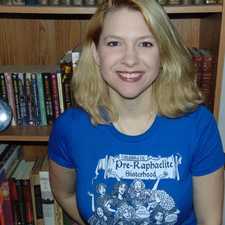 Stephanie Graham Piña is an independent scholar whose research focuses on Victorian Art, especially the Pre-Raphaelites. In 2004 she created LizzieSiddal.com, a resource for those interested in the life of Pre-Raphaelite model and painter Elizabeth Siddal. She established her website 'The Pre-Raphaelite Sisterhood' in 2007 to highlight the work of women artists associated with the Pre-Raphaelite Circle. Through her popular online publications, she has been a leading advocate of independent research and discourse on Victorian art. You can follow her at @beguilingmerlin. Here, Stephanie discusses how Fanny Cornforth, one of the most influencial models and muses to the Pre-Raphaelite artists, has been remembered by historians and critics. Unlike other Pre-Raphaelite models, such as Lizzie Siddal or Jane Morris, Fanny was a sex worker and from an impoverished background. She is described as having a thick Cockney accent, a dirty sense of humor, and dubious morals. Whilst it is perhaps understandable that Victorian moralists would dismiss Fanny's artistic influence, Stephanie suggests this prejudice continues today. You can help fund a tribute to Fanny. We hope to commission a memorial to be installed with a commemoration ceremony in Chichester Cemetery on April 9, 2017. Any additional funds raised will be used to commission a memorial to her at Graylingwell Chapel. Please visit the GoFundMe account for this project and share it as much as you can. Spread the word on social media using the hashtag #RememberFanny. GoFundMe: Fanny Cornforth Remembered created by Sarah Rance-Riley Dr Andrew Bretz teaches Renaissance and Early Modern drama and poetry at Wilfrid Laurier University in Ontario, Canada and is the Acting Project Coordinator for the Canadian Shakespeare Association. He received his PhD from the University of Guelph in 2012, where his dissertation work was on the representation of the rapist on the early modern stage. He has published or presented on Elizabethan brothels, sexual identity in the early modern period, sexual violence and pedagogy, early modern prison writing, masculinity in film, Shakespeare on the radio, and digital approaches to teaching medieval and early modern literature. You can follow Andrew on twitter @Andrew__Bretz and take a look at his YouTube channel or his blog on teaching the early modern period, The Scholemaster.
Catharine Arnold read English at Cambridge and holds a further degree in psychology. Catharine's first novel, Lost Time, a gay love story set in Cambridge, won a Betty Trask award. Catharine's narrative non-fiction series on the dark side of London includes Necropolis, London and its Dead, Bedlam, and City of Sin, London and its Vices. Edward VII, The Prince of Wales and the Women He Loved, will be published in 2017 by St Martin's Press. Catharine has recently completed a crime novel.
We are thrilled to have an article by Catharine on the legendary courtesan, Lillie Langtry. You can follow her at @ London_darkside 'All Manner of Wickedness and Debauchery: The Trial of Constantia James' by Catherine Curzon12/11/2016 Catherine Curzon is a royal historian who writes on all matters 18th century at www.madamegilflurt.com. Her work has been featured on HistoryExtra.com, the official website of BBC History Magazine and in publications such as Explore History, All
About History, History of Royals and Jane Austen’s Regency World. She has provided additional research for An Evening with Jane Austen at the V&A and spoken at venues including the Royal Pavilion in Brighton, Lichfield Guildhall and Dr Johnson’s House. Catherine holds a Master’s degree in Film and when not dodging the furies of the guillotine, writes fiction set deep in the underbelly of Georgian London. Her books, Life in the Georgian Court, and The Crown Spire, are available at the links below and at retailers worldwide. She lives in Yorkshire atop a ludicrously steep hill. Life in the Georgian Court Amazon UK - Amazon US The Crown Spire Amazon UK - Amazon US  Rictor Norton Ph.D. is a Social and literary historian and writer, specializing in gay history. Member of the Gay Liberation Front, Florida, 1971-72, campaigned against Florida's sodomy statute. Edited The Homosexual Imagination, a special issue of College English, the first all-gay issue of an academic journal, 1974; introduction "The Homophobic Imagination" reproduced on Norton's website. He was the research Editor for the fortnightly news journal Gay News, London, 1974-78. Rictor has written articles on gay history and literature for Gay Sunshine, The Advocate, Gay News, etc. during the 1970s, and for Gay Times later. He has published academic articles in Renascence, American Imago, Yearbook of Comparative and General Literature, the London Journal, etc. Rictor was the Foreign Rights Manager for Western Publishing Company (Golden Books), 1979-90; a freelance publishing consultant 1991-94; freelance writer and editor since 1995. He has authored many books on gay history and on the Gothic Novel, including the highly acclaimed Mother Clap's Molly House: The Gay Subculture in England, 1700-1830 (1992), My Dear Boy: Gay Love Letters through the Centuries (ed.) (1997), The Myth of the Modern Homosexual (1997), a critique of social constructionism; a biography of the Gothic novelist Ann Radcliffe (1999); an anthology of Gothic Literature (2000); and several facsimile collections of eighteenth-century British erotica for Pickering and Chatto, Sex Doctors and Sex Crimes (2002) and Sodomites, Mollies, Sapphists and Tommies (2004). He is a contributor of entries to Who's Who in Gay & Lesbian History (Routledge, 2001) and a contributor to the Oxford Dictionary of National Biography. He maintains an extensive website on Gay History and Literature, with large subsections on Homosexuality in Eighteenth-Century England: A Sourcebook and on the "father of gay history" John Addington Symonds, as well as a non-gay site on Early Eighteenth-Century Newspaper Reports: A Sourcebook. In December 2005 he formed a civil partnership with his partner of nearly thirty years.  Sara Sheridan writes historical novels and also runs REEK. perfume. Her first fragrance, Damn Rebel Bitches, is a tribute in scent to the Jacobite women and has been called ‘the first feminist fragrance.’ We have been lucky enough to have her share her research and insights into the history of being topless.  Princess Honey Bee is a kink blogger, and blogs about Bondage, Discipline, Sadism and Masochism at https://princessbhive.com/about/ . She has been in the BDSM lifestyle for over 15 years, and is a former professor of sociology. @Princessbhive  Dr. Kate Lister is a researcher at Leeds Trinity University in historical attitudes to sexuality and sex work. She has published on the history of media narratives around sex work, the history of menstruation and sexual violence in historical dramas. She is the curator of the popular Twitter account @WhoresofYore where she tweets the history of illicit sex and works to promote sex worker rights and challenge stigma. 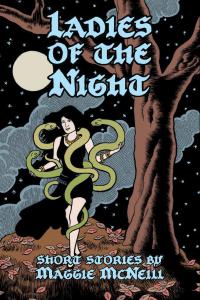 "Overeducated and unrepentant whore who talks far too much and writes the popular blog The Honest Courtesan in addition to the usual harlotry". Maggie McNeil is a sex worker, sex worker rights activist, author, and blogger. She blogs about her personal experiences (sans lurid detail), about the history of the profession, sometimes about unusual aspects of it most outsiders don’t know about. Her book Ladies of the Night is available to buy now. @Maggie_McNeill  Kate Lister is a researcher at Leeds Trinity University in historical attitudes to sexuality and sex work. She has published on the history of media narratives around sex work, the history of menstruation and sexual violence in historical dramas. She is the curator of the popular Twitter account @WhoresofYore (you may have heard of it).  Dr Lesley Hulonce is historian and lecturer of health humanities in the College of Human and Health Sciences at Swansea University. Her research interests include the histories of children, disability, poverty, gender and prostitution via state and voluntary action. Her new book Pauper Children and Poor Law Childhoods in England and Wales 1834-1910 is available here. She is co-director of the Research Group for Health, History and Culture and founder of Academics for a Publishing Revolution. She blogs at Workhouse Tales and Prostitution and Women's Work and tweets at @LesleyHulonce and @HistHealthCult. |
Sex History ContentsIf you would like to submit an article, please fill out a submission on the Contact page Archives
September 2020
|
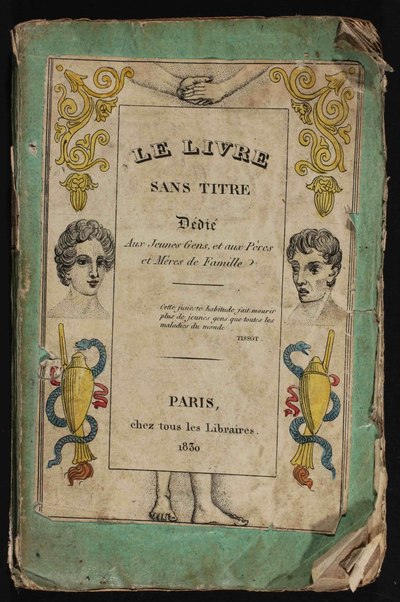
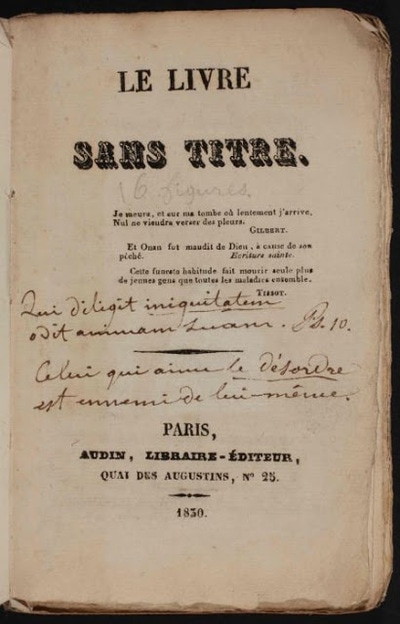
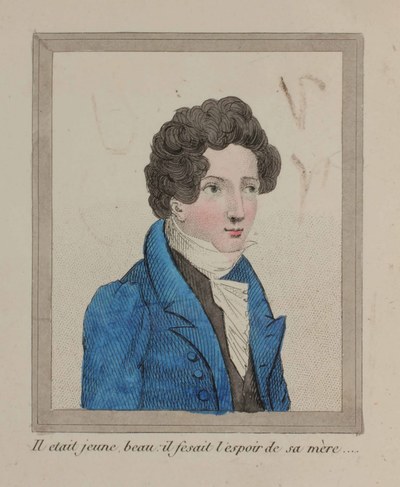
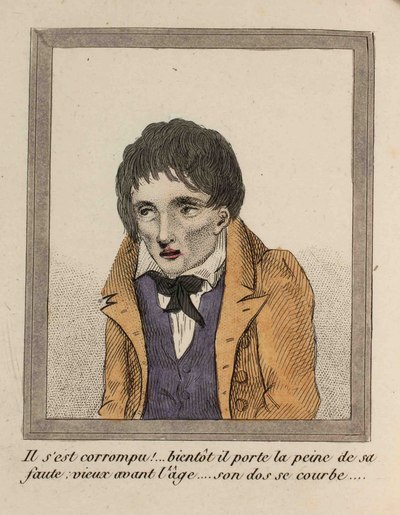
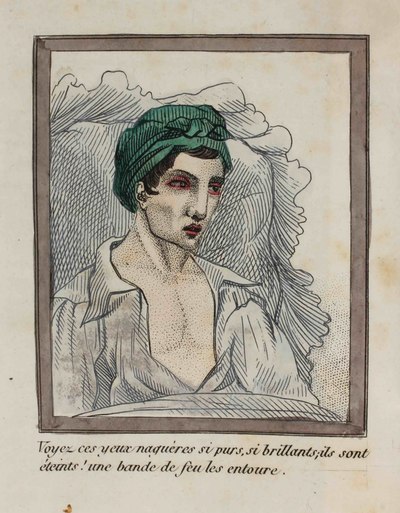
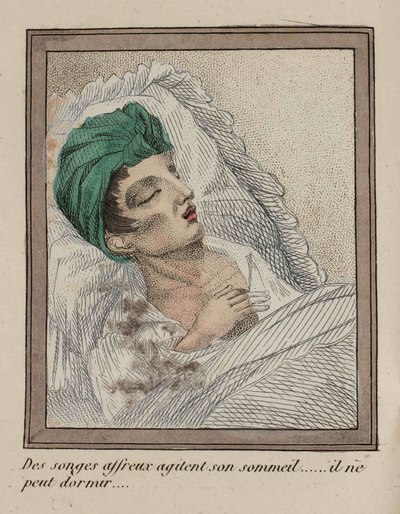
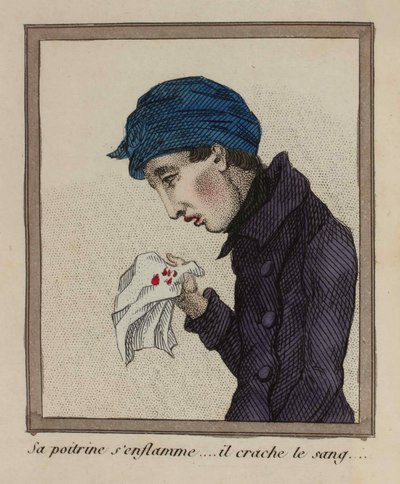
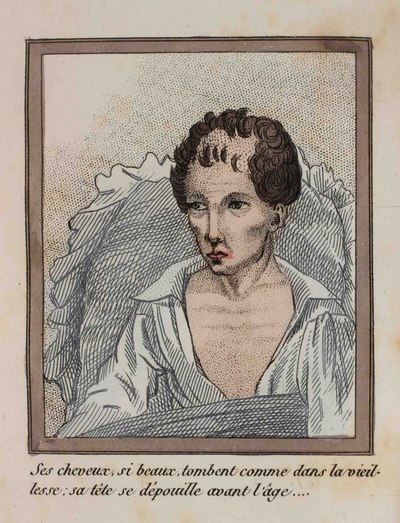
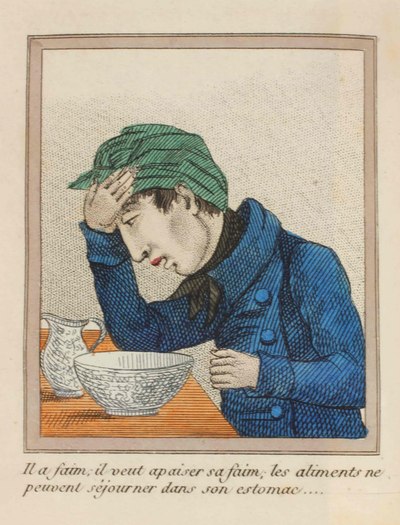
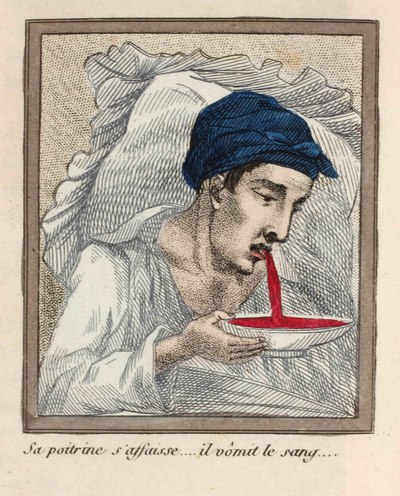
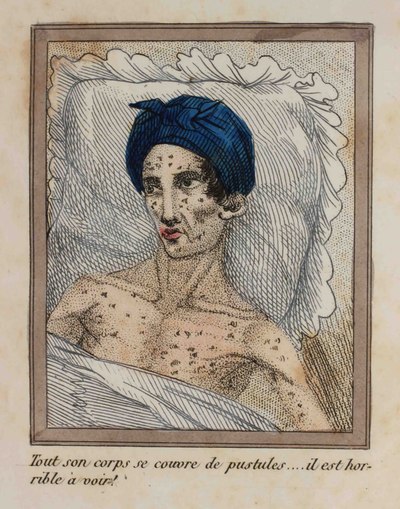
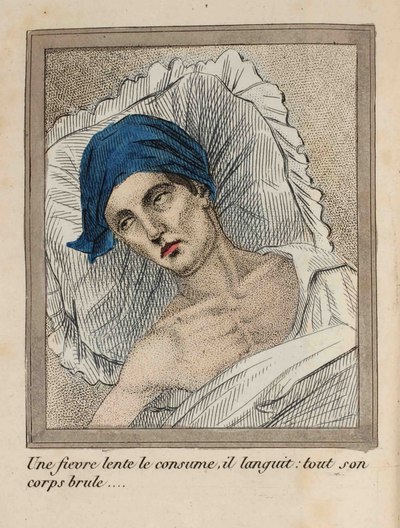
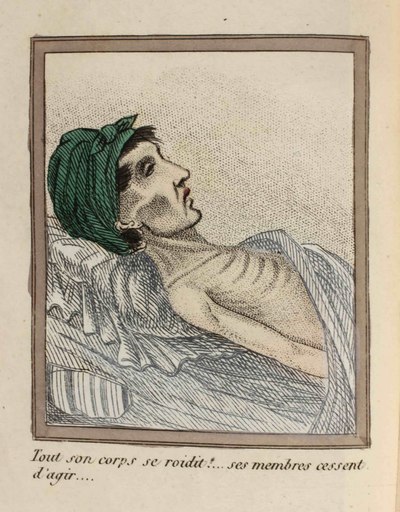
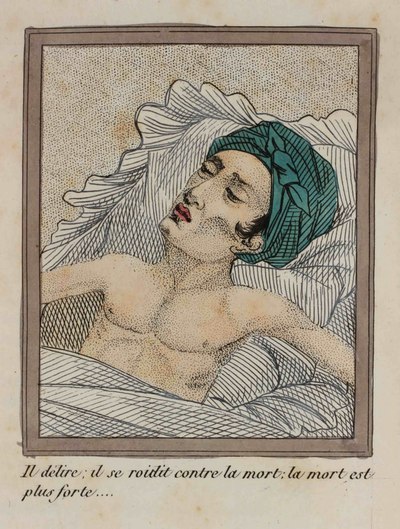
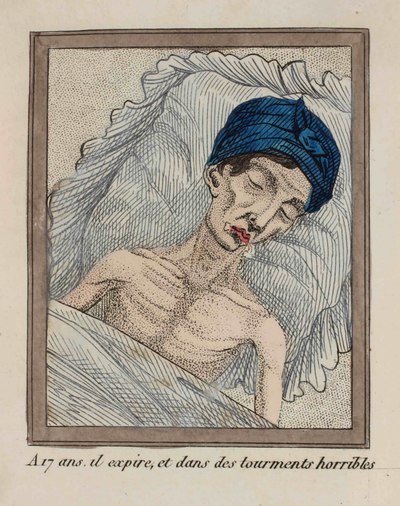
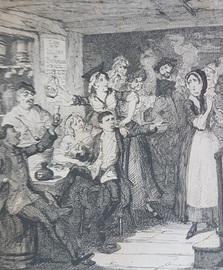
 RSS Feed
RSS Feed